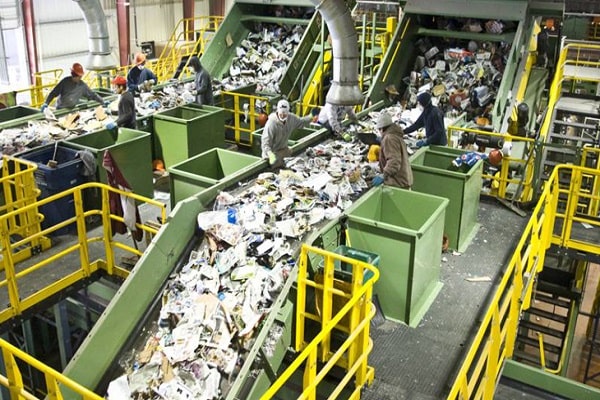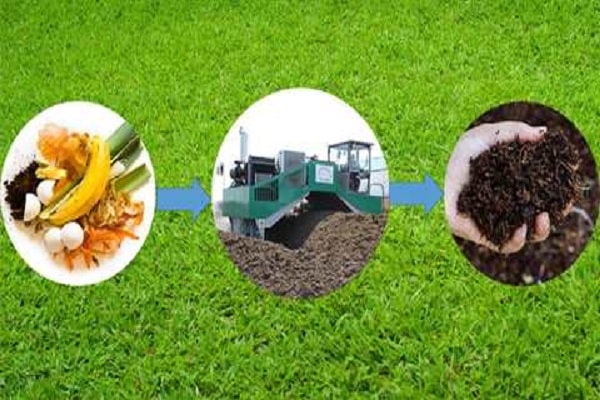Recycling
All solid waste (perishable and non-perishable) that is produced in homes, food preparation and distribution centers, industrial and commercial establishments and agriculture, and hospitals and medical centers is called waste.
This dumping of this waste, in addition to environmental pollution, will destroy a large part of our renewable resources. Recycling industry today is one of the ways to create added value and greater productivity in society.
Objectives of waste recycling and compost production
- Improving the method of storage, collection and recycling of waste
- Purification of dry waste (synthetic materials) for optimal recovery and return of such materials to the production cycle
- Preventing the waste of national capital and helping the country’s macro-economy
- Minimizing landfilling and eliminating it in the future
- Improving the quality level of urban services
- Preserving the environment and preventing the production and spread of pollutants
- Improving the level of public culture in dealing with waste

Definition of waste
Commonly referred to as all solid waste (perishable and non-perishable), it is produced in homes, food preparation and distribution centers, industrial, commercial and agricultural establishments, and hospitals and medical centers.
Types of waste
Waste refers to a set of materials resulting from human and animal activities that are usually solid and discarded unintentionally or unusably. This definition generally includes all sources, types of classifications, composition and characteristics of waste and is divided into four general categories of municipal waste, industrial waste and hazardous waste and hospital waste.
Waste classification
Divide waste into two categories: wet waste (food waste, vegetable waste and fruit waste: fruit waste) and dry waste (paper and cardboard, plastic, metals, glass, textiles and leather, wood, electrical and electronic appliances).
Types of waste disposal methods
Sanitary landfilling of waste, incineration of waste, composting (preparation of fertilizer from waste), dumping, disposal in rivers, seas and…
Use of waste
Today, the most important indicators of human life are the protection of production resources. Humans have found that the consequences of the damage they do to nature far outweigh the benefits of environmental pollution. Therefore, by using practical and scientific facilities, it tries to cause the least damage to nature. Today, waste generation is a problem in big cities.
The process of waste generation, which is itself the result of the activity of the urban man-consumer, who is encouraged to consume more every day, is an integral part of life. On average, every urban person produces half a kilogram of waste per day, and if we estimate the urban population of the country at 30 million people, equivalent to fifteen thousand tons of waste is produced daily, which if not disposed of properly, hygienic The inevitable will follow the environment.
On the other hand, if we look at waste in a positive light and put the phrase “dirty gold” in it, waste is a valuable and recyclable material.

Factors affecting the preparation of fertilizer from waste
- The moisture content of the compost mass should be between 50 and 60%.
- Provide the oxygen needed to decompose materials (aeration).
- The temperature required to decompose the material is about 60 ° C.
- Homogeneity of materials in order to control the decomposition process.
- Ratio adjustment (this ratio should be around 30).
- The smaller the dimensions and parts of the materials to be decomposed, the greater their total surface area and, as a result, their level of contact with the microorganism increases.
Principles of work in the preparation of fertilizer from waste is the intermittent aeration of the materials from which the compost is prepared. Aeration, in addition to providing the oxygen needed to decompose materials, increases the temperature, controls flies and abnormal odors, and ultimately accelerates the decomposition process. In preparing fertilizer from waste, disposal of non-compostable materials, separation of non-compostable materials, the need for compost, and how to use it, its production and control, hygienic aspects and cost of compost are all factors that must be carefully considered. To be placed.

Lbvbba https://newfasttadalafil.com/ – cialis online prescription buy cialis non prescription Amoxicillin And Mono Mubejd https://newfasttadalafil.com/ – tadalafil cialis from india Yrthio
liver renew
yacht charter karibik